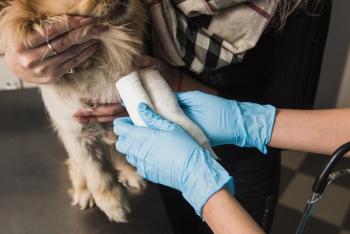
- dvm360 June 2021
- Volume 56
How to foster tighter bonds with your associate veterinarians
Associate doctors play an integral role in the success of your practice. That’s why it’s crucial for practice managers to build long-lasting and positive relationships with them. Not sure where to start? Here are a few useful strategies.
Associate veterinarians are the lifeblood of your practice, according to Brian Conrad, CVPM, practice manager of Meadow Hills Veterinary Center in Kennewick, Washington. “Without our associate [doctors], we don’t exist,” he said.
During his lecture at the
Set clear expectations
To help establish tighter relationships with your associate veterinarians, you must have clear job descriptions, Conrad told attendees.
“The clearer the expectations are laid out, the better the relationship will be from the start,” Conrad said. Here’s a look at some key characteristics he says to look for when hiring associate veterinarians:
- Practice exceptional medicine
- A leader within the clinic
- Ethical
- A good communicator
- A delegator
- Change ready and an innovator
- Work to educate clients toward compliance
- A team player
- Reliable
- Creates a positive environment for staff and clients
Financial expectations
In addition to providing job expectations, it’s crucial to discuss the monetary components of the business. Make sure associate veterinarians understand your expectations for:
- Gross production
- Average transaction
- Number of appointments per hour
- Number of surgeries/dental appointments per hour
- Doctor schedule and hours worked
- Community service
Continuing education (CE) goals
Veterinarians tend to enjoy continuing education (CE), something Conrad encourages at his practice. He says one great way to help strengthen your relationship with associate doctors is by highlighting their CE accomplishments on social media. Not only does that make them feel valued, but it shows your clients the strides these doctors are willing to take to provide the best possible care to their pets.
Promote staff education
Staff meetings are great learning opportunities for the entire team. Conrad suggests having associate veterinarians prepare a 30-minute lecture providing practical information that is client-friendly and includes plenty of photos. At his staff meetings, he sends a notebook across the room and everyone writes down their topics of interest. Then, he lets the doctors pick out 1 or 2 of these topics to discuss.
“It’s important that we educate our staff so that they can be confident. Our clients love a confident staff member. There is nothing worse than having someone incompetent or not sure,” Conrad said.
Team building
Another way to boost staff morale is by incorporating more fun into the workplace, says Conrad. Try hosting several team-building exercises and events so your associate veterinarians can mix and mingle with other team members outside of the workplace.
“We are very quick to do some kind of team building to really create that cohesive team,” he said. “We work very hard and it’s very stressful and it’s going to be important for us to let our hair down a little bit and at least have a good laugh.”
Articles in this issue
over 4 years ago
The multimodal approach to canine atopic dermatitisover 4 years ago
Boost parasite treatment and control with affordable optionsover 4 years ago
Survey sheds light on pet owners’ perspective on cancerover 4 years ago
Setting the timetable for sterilizing petsover 4 years ago
Parasites in pets: Understanding prevalence and perceptionover 4 years ago
Start with a dreamover 4 years ago
Antibiotics for UTIs in dogs and cats?: When to say “no”Newsletter
From exam room tips to practice management insights, get trusted veterinary news delivered straight to your inbox—subscribe to dvm360.






